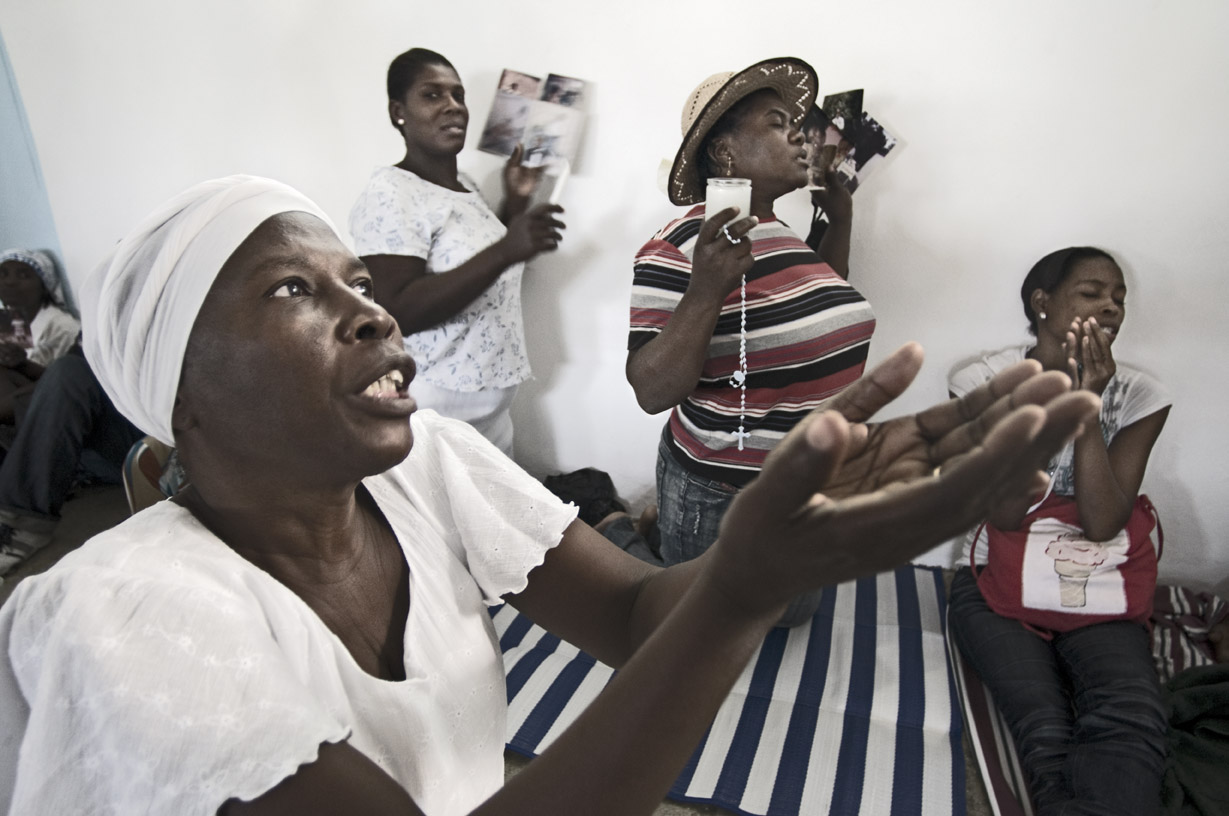

Aristide was overwhelmingly elected president of Haiti twice – first in 1990 and again in 2000, both times his administration was overthrown in a coup d'état supported by the United States government. Menes is referring to Jean-Bertrand Aristide, a former priest who embraced liberation theology, an approach that emphasizes helping the poor and oppressed.

"It happened with Aristide and he was actually doing good for the people." "We have seen, historically, a lot of puppet presidents that the United States has put in power," says Menes, who is Haitian American. or if it's supported by the people, it's interrupted by the United States government." She says that leadership in Haiti "has either been supported by the U.S.

"It's not a mutually beneficial relationship how Haiti governs and functions, is to the benefit of the United States," Menes says. occupation of Haiti from 1915 to 1934, including the support of a brutal dictatorship and the recent massive surge of migration in Del Río, Texas. immigration policy as historically racist and anti-Black – pointing to the U.S. The relationship between Haiti and the U.S. Haitian migrants cross the Río Grande into the U.S. It's the layer of being Black and immigrant," she adds, "being Black in America is a very different reality." Menes says that when Revolus shared his plans, her heart sank – not only because the journey is long and dangerous, she says, but, "as Black immigrants, you are treated much more differently and much harsher than any other immigrant group. "I wish I had listened to my cousin," Revolus says, "but we were just looking for a better life." "It wasn't an easy decision, but we were desperate," he says.įor months Revolus says he spoke with his cousin Francesca Menes, an activist in Miami who runs The Black Collective, a grassroots organization, about his plans to seek asylum at the U.S. He says he and his wife garnered the courage to head to the border. "Many friends made the journey and were able to reunite with family in the U.S.," Revolus says. "When I complained to my boss, he didn't do anything."įeeling growing pressure in Chile, many Haitians started traveling to the U.S.

They resented having to share tips with him, he says. "Two co-workers tried to stab me," says Revolus, who was in Chile on a work visa. "We faced discrimination and racial slurs." Then attitudes toward Haitians changed, he says. He was able to find work at a meat shop, stocking refrigerators and shelves but was barely making enough to cover basic living expenses. "We were first welcomed in Chile," he says. "We don't leave our house very much, especially after dark," says 42-year old Revolus, whose family is temporarily living with one of his sisters in Port-au-Prince, the capital. They were taken to a detention center in Texas. 24 when the makeshift camp was cleared by authorities. Revolus says his infant son kept getting sick, constantly throwing up and having diarrhea.īorder Patrol officers detained the family in Del Río on Sept. But it took them almost three months of travel mostly by bus, many days by foot and the family crossed from Colombia to Panama in a jam-packed boat. "I want people to understand the misery," says Revolus who describes the journey as "hell." Revolus can't remember the exact date when his family started the journey to the the U.S. Border Patrol officers on horseback were seen corralling people, pushing them back to the Río Grande and onto México. Photos from the makeshift camp in Del Río show desperation and unsanitary conditions where almost 15,000 Haitians hoped to apply for asylum. Like thousands of Haitians, Gibbens Revolus, his wife, Lugrid, and their 2-year-old son, Diego, made the treacherous journey to the U.S.-México border from Chile and ended up under the international bridge in Del Río, Texas, last month. United States Border Patrol agents on horseback try to stop Haitian migrants from entering an encampment on the banks of the Río Grande near the Acuña Del Río International Bridge in Del Río, Texas on Sept.


 0 kommentar(er)
0 kommentar(er)
